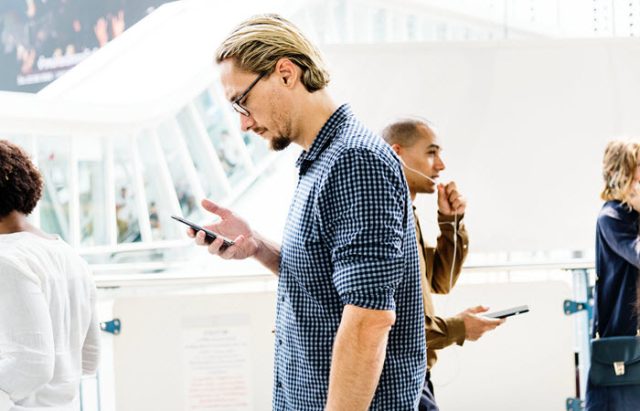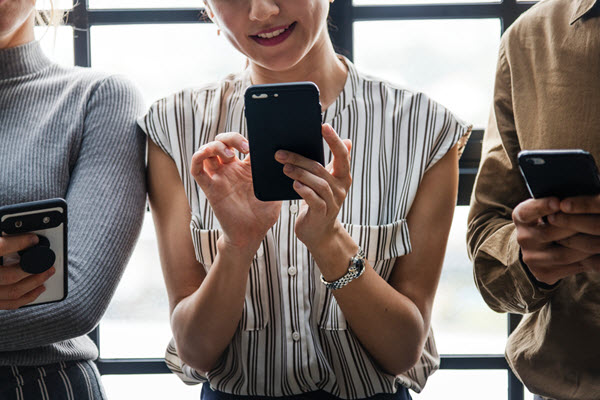Why Social Media is Dying a Slow Death

I remember when I was a young whippersnapper of a kid — no place to be and no dependents to take care of. I was responsible, trustworthy, and intelligent enough to work my way to a comfortable place in whatever job I held at the time.
And I was balanced enough to separate work from play and appreciate the benefits of both. I was social enough always to have the choice to accept or turn down plans on my own timeline.
If social media had been around, would I have spent hours of my day liking, retweeting, and hash-tagging every conversation?
Perhaps, but instead, I was flipping through teen magazines and listening to music and writing in my journal. I was hanging out on the railroad tracks and riding bikes down country roads. I was spending my hard-earned pennies on ice cream and eating lunch wherever the cute guy of the year was working.
I’m not sure if kids still do these things, but I am sure that if they are filling their time with social media, they are missing out on some pretty kick-ass memories.
The funny thing is that this was not that long ago. I’m a few years short of 40 which means I fall into this crazy half-identity crisis where I am technically a millennial but only by birth year.
I run an online business and I have and use Facebook and Instagram. I have (and have abandoned) Snap Chat, Pinterest, and Twitter. I've seen the benefits of social media for social interactions and I've seen the benefits of social media for brands large and small.
But I’m struggling to see how this can last.
In fact, I recently gave up a freelance gig as a social media manager for a few local businesses and it's because of the unintended consequences of social media.
Below are some of them:
Encouraging unrealistic expectations

As brands post, tweet, and tag each other 24 hours a day, they are setting the precedent that it’s okay for all of us to be glued to our devices. FOMO is a very real thing and it’s only encouraged by constant social marketing.
While figuring out algorithms and human behavior might be a fun task for some social strategist, in reality, it gains very little. While brands are gathering information on their prospective customers, they are also making assumptions about the masses.
Instead of making our own choices about what we want to buy and whom we want to buy it from, we’re force-fed ads, links, and promotions all day, every day. Eventually, it only leads to burnout.
It’s not a secret that people take vacations to detox from their devices. They are literally planning time to be offline because of mental overwhelm and exhaustion.
Personal degradation
Let’s be honest.
We’re all weird in our own way.
That’s what makes the world such an amazing place to live. While I feel like the social media movement to support uniqueness and individuality is on the rise, the norm is still to post “perfection”.
It does not matter how many likes, hearts, and “friends” you have on social media. The relationships that truly matter are those of the people you talk to on the phone and in person.
There will always be trolls waiting to pounce. There will always be a con artist waiting to trick. And there will always be mean girls waiting to tear down their fellow classmates.
Don’t let them bring you down. I wish I were just talking to the tweens out there, but alas, I am not. You know who you are.
Lack of socialization

It’s ironic, isn’t it?
The more we depend on social media, the less social we become. Studies are revealing the addictive traits of social media including neglect of personal life, mental preoccupation, and mood modification. And the anxiety that comes for some with the withdrawal of social media is concerning, to say the least.
With the increase of online interaction comes a decrease in personal interaction. There are fewer phone calls, face-to-face conversations, and in-person educational experiences.
I love seeing photos of new babies. I love hearing about the new jobs, promotions, and life events of my family and friends. And that is what social media was designed to do – keep us connected when we’re far apart.
In that aspect, it is a complete success.
But when social media causes a lack of personal skills in our up-and-coming workforce, increases teen depression rates, and replaces real human interaction, that’s when we’ve got to take a step back and review our priorities.
See Also: Social Media Causing Depression and Anxiety: Is It True?
What do you think? Has social media swung our society too far away from personal interaction? Is this a trend that will continue to change how we live and do business for in the long term?
Rachel Frederick
Rachel is a marketing coach for small businesses in the health and wellness industry. She helps uncover the amazing stories that make each small business so unique so they can continue to help their local communities grow in health. You can read more about her at www.thewellbalancedbusiness.com


